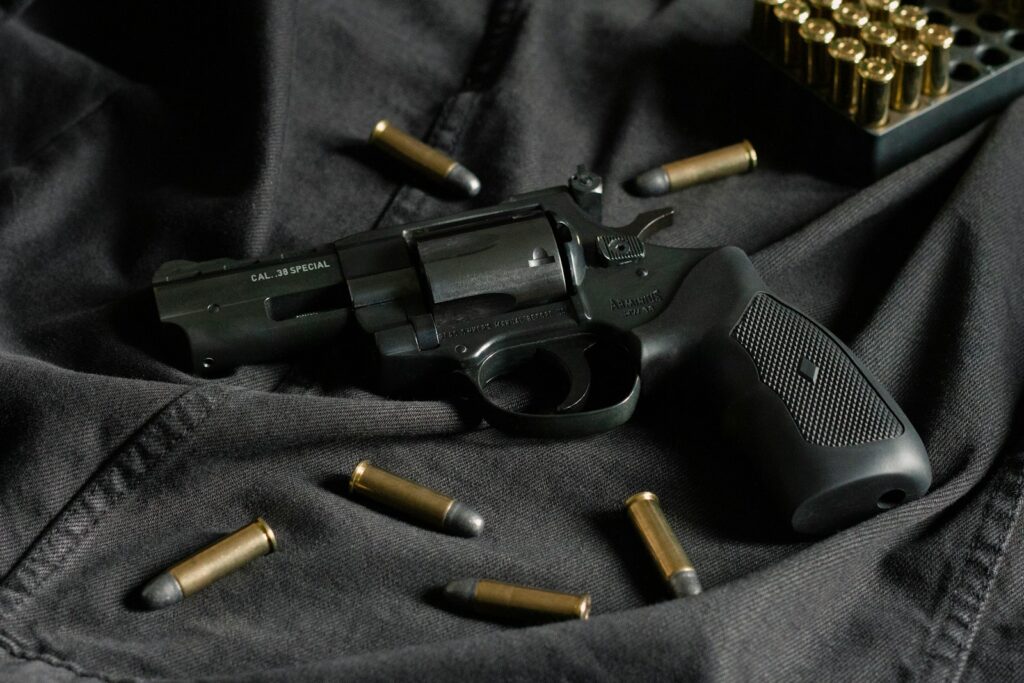Respect for firearms is foundational to responsible gun ownership and ensuring safety. By fostering an attitude of respect, both new and experienced gun owners can contribute significantly to personal and public safety.
Understanding Respect in the Context of Firearm Ownership
Definition of Respect in Gun Ownership
Respect in firearm ownership involves acknowledging the power and potential danger inherent in firearms. This means treating every firearm as if it is loaded, never pointing it at anything you are not willing to destroy, and keeping your finger off the trigger until you are ready to shoot. It’s an attitude that prioritizes safety and mindfulness in handling firearms.
Historical Perspective on Respect and Firearm Use
Historically, firearms have been tools for hunting, defense, and sport. With these roles comes the need for a deep respect for their lethality and responsibility in their use. Traditionally, respect for firearms has been passed down through generations, from elders to youths, ensuring that safety protocols and ethical behavior are ingrained from an early age.
Principles of Responsible Gun Ownership
Ethical Considerations in Bearing Arms
Ethical considerations are paramount in responsible gun ownership. This includes understanding the impact of firearm use on society, ensuring firearms are not misused, and advocating for safe and responsible handling. Ethics also encompass the decision of when and where it is appropriate to use a firearm, emphasizing the need to prevent unnecessary harm.
Legal Responsibilities of Gun Owners
Gun owners are bound by various legal responsibilities designed to ensure public safety. These include adhering to laws regarding the purchase, storage, and transportation of firearms. By understanding and complying with these legal frameworks, gun owners demonstrate respect for the societal rules that protect all citizens.
Importance of Firearm Safety Training
Key Components of Effective Safety Training
Effective firearm safety training covers several key components, including the understanding of the four cardinal rules of firearm safety. According to an article on important gun safety rules, these rules significantly reduce the risk of accidental injuries or fatalities. Training should also include proper shooting techniques, maintenance of firearms, and emergency procedures.
Role of Certification and Continued Education
Certification in firearm safety signifies that an individual has met a baseline competency in understanding and applying safety principles. Continued education is crucial, as it keeps gun owners updated on new laws, technologies, and safety techniques, thereby maintaining a high standard of responsibility and respect.
Community and Educational Programs for Gun Safety
Community Outreach and Gun Safety Awareness
Community programs play a vital role in promoting firearm safety awareness. These programs often involve law enforcement and local organizations working together to provide educational workshops, safety demonstrations, and resources for gun owners. Such outreach ensures that respect for firearms is reinforced at a community level.
School and Youth Programs on Firearm Safety
Educating young people about firearm safety through school programs helps instill respect and responsible behaviors early on. These programs typically cover the basics of firearm safety, the consequences of misuse, and the importance of respecting firearms, aiming to prevent accidents and promote a culture of safety and ethical use.
Practical Application of Respect in Gun Use
Safe Storage and Handling of Firearms
Proper storage and handling are practical applications of respect in gun use. Firearms should always be stored unloaded in a locked safe, separated from ammunition. Handling protocols, such as always pointing the muzzle in a safe direction and confirming the firearm’s status (loaded or unloaded), are critical for preventing accidents.
Respecting Firearm Safety Standards and Protocols
Respecting established firearm safety standards and protocols is crucial. This includes following manufacturer instructions, participating in regular training, and adhering to legal requirements. By standing by these standards, gun owners demonstrate their commitment to safety and responsible usage.
Ethical Firearm Use and Ownership
Consequences of Negligence and Disrespect
Failing to respect firearms can have severe consequences, including accidental injuries and fatalities, legal ramifications, and societal harm. Negligence can erode public trust in gun owners and lead to stricter regulations. Therefore, respecting firearms is not just a personal responsibility but a public one as well.
Promoting an Ethical Gun Ownership Culture
Promoting an ethical gun ownership culture involves advocating for responsible behaviors, such as safe handling, regular training, and adherence to laws. It also includes fostering discussions on the ethical implications of firearm use and encouraging a collective commitment to respect and safety.
Prominent Organizations and Their Role in Gun Safety
Contribution of the NRA and Similar Organizations
Organizations like the National Rifle Association (NRA) play a significant role in firearms safety education. They offer courses, certification programs, and resources that promote responsible gun ownership and respect for firearms. These organizations advocate for the rights of gun owners while emphasizing the importance of safety.
Advocacy by Gun Control and Public Safety Groups
Gun control and public safety groups advocate for policies and practices that aim to reduce gun violence and improve safety. These groups often push for stricter laws, better enforcement, and increased community education. Their role is crucial in creating a balanced approach to firearm ownership and public safety.
Case Studies and Real-World Examples
Success Stories in Promoting Gun Safety through Respect
Several case studies highlight successful initiatives in promoting gun safety through respect. For example, community-led programs that focus on educating gun owners on the importance of safe storage have resulted in a decrease in accidental shootings. These success stories underscore the effectiveness of respect-based safety education.
Ethical Issues In Artificial Intelligence(AI)(Opens in a new browser tab)
Lessons Learned from Safety Failures
Conversely, lessons learned from safety failures illustrate the consequences of neglecting respect in firearm ownership. Incidents of accidental discharges, improper storage, and misuse serve as stark reminders of the importance of upholding safety principles. Analyzing these failures helps improve safety protocols and educational strategies.
By embedding respect at the core of firearm ownership and safety, both individual and community safety can be significantly improved, fostering an environment of responsible and ethical use.
